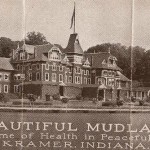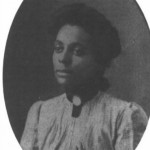Although there is scant evidence that Martinsville, Indiana was the state’s Ku Klux Klan headquarters, the city’s reputation as a racist hub can still precede it.
Admittedly, there were 1,600 Klan members in Morgan County in 1925, but 27 per cent allegiance to the organization among the county’s white males was representative of the Klan’s popularity throughout the state at that time.
The brutal murder of a young, black encyclopedia saleswoman in 1968, along with several racially charged altercations and incidents of hate speech at high school sporting events and in a letter to the editor, have convinced many of the racial intolerance of the mostly white central Indiana city.
But there’s another side to the story of Martinsville.
When the Klan announced plans to march through Martinsville in 1967, the mayor was successful in banning a parade and encouraging locals to ignore the Klan’s motorcade. One resident even proposed that, alternatively, a “Do-Good Bazaar” be held at the county fairgrounds.
Earlier in the century, the city was known for its Artesian mineral water springs. Among the many health resorts that thrived there, African-American proprietor Willis Clark’s facility catered to a black clientele.
A black porter at another spa, the Martinsville Sanitarium, worked on behalf of the city’s youth. Albert “Doc” Merritt ran a club for the city’s poor boys for more than 40 years, providing a haven and a moral framework for an estimated 2000 boys.
Merritt is celebrated annually with a gala dinner, first organized in 1998 by the citizen group PRIDE—or People Respecting Individuality and Diversity in Everyone.
PRIDE is one of several initiatives formed to promote civil rights in Martinsville and refurbish its reputation—from Citizens for Cultural Enhancement (formed in 1989) to the “Tearing Down Fences, Building Bridges” diversity education campaign created by the Martinsville and Mooresville Chambers of Commerce in 2003.






















